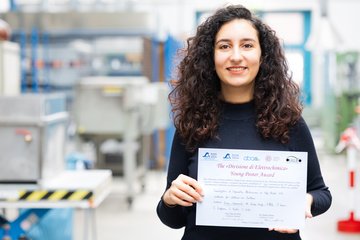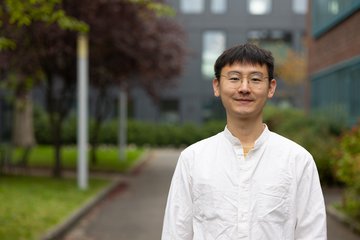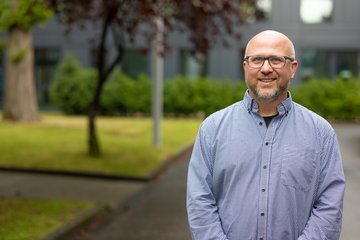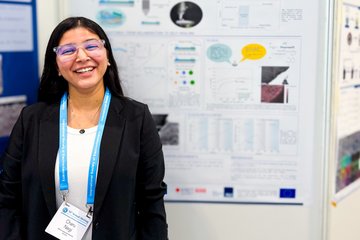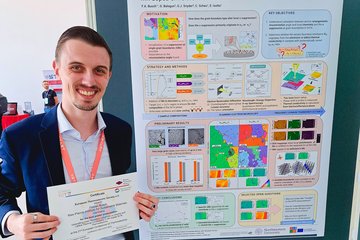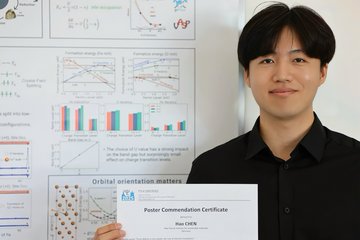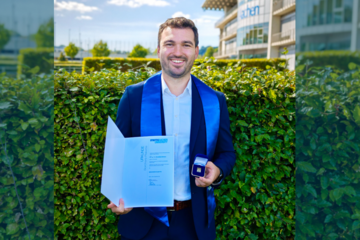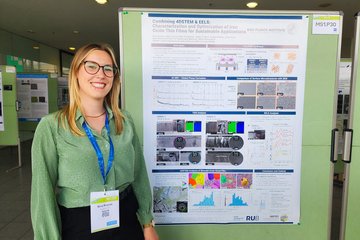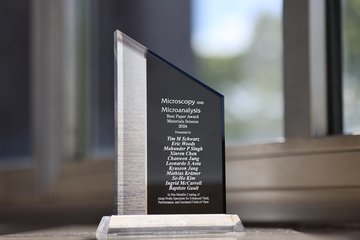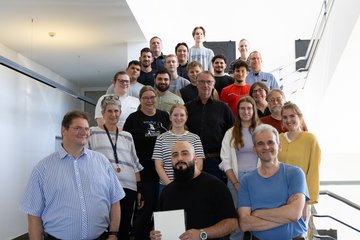All genres
861.
Journal Article
Characterization of Nanostructured Electrodeposited NiCo Samples by use of Electron Backscatter Diffraction (EBSD). Mater. Res. Soc. Sympos. Proc. 880E, BB1.3. (2005)
862.
Journal Article
Mesoscale simulation of the kinetics and topology of spherulite growth during crystallization of isotactic polypropylen (iPP) by using a cellular automaton. (2005)
863.
Journal Article
Effect of Through-Thickness Macro and Micro-Texture Gradients on Ridging of 17%Cr Ferritic Stainless Steel Sheet. Steel Research Int. 76, 11, pp. 797 - 806 (2005)
864.
Journal Article
Phase equilibria among α-Fe(Al,Cr,Ti), liquid and TiC and the formation of TiC in Fe3Al-based alloys. Acta Materialia 53 (14), pp. 3961 - 3970 (2005)
865.
Journal Article
Hot deformation behavior of a Fe3Al-binary alloy in the A2 and B2-order regimes. Intermetallics 13 (12), pp. 1304 - 1312 (2005)
866.
Journal Article
2D cellular automaton simulation of the recrystallization texture of an IF sheet steel under consideration of Zener pinning. Computational Materials Science 34, pp. 299 - 313 (2005)
867.
Journal Article
Mesostructure of the Exoskeleton of the Lobster Homarus Americanus. Mater. Res. Soc. Sympos. Proc. 874, pp. 155 - 160 (2005)
868.
Journal Article
Discovery of a honeycomb structure in the twisted plywood patterns of fibrous biological nano-composite tissue. Journal of Crystal Growth 283, 1-2, pp. 1 - 7 (2005)
869.
Journal Article
The crustacean exoskeleton as an example of a structurally and mechanically graded biological nanocomposite material. Acta Materialia 53, pp. 4281 - 4292 (2005)
870.
Journal Article
Crystal plasticity simulation study on the influence of texture on earing in steel. Computational Materials Science 34, pp. 221 - 234 (2005)
871.
Journal Article
Mechanical properties of an ultrafine grained CMn steel processed by warm deformation and annealing. Acta Materialia 53, pp. 4881 - 4892 (2005)
872.
Journal Article
On the influence of heavy warm reduction on the microstructure and mechanical properties of a medium-carbon ferritic steel. Zeitschrift für Metallkunde 95/12, pp. 1108 - 1114 (2004)
873.
Journal Article
Development of Microstructure and Texture of Medium Carbon Steel during Heavy Warm Deformation. Acta Materialia 52/8, pp. 2209 - 2220 (2004)
874.
Journal Article
Grain boundary characterization and grain size measurement in an ultrafine grained steel. Zeitschrift für Metallkunde 95/6, pp. 513 - 517 (2004)
875.
Journal Article
Orientation dependence of nanoindentation pile-up patterns and of nanoindentation microtextures in copper single crystals. Acta Materialia 52 (8), pp. 2229 - 2238 (2004)
876.
Journal Article
Slip system determination by rolling texture measurements around the strength peak temperature in a Fe3Al-based alloy. Materials Science and Engineering A 387–389, pp. 950 - 954 (2004)
877.
Journal Article
Texture Analysis of a Coarse Grained Fe3Al Cast Alloy by Neutron Scattering. Genf-Experimental Report 2003, pp. 183 - 199 (2004)
878.
Journal Article
Numerical study of textures and Lankford values for FCC polycrystals by use of a modified Taylor model. Computational Materials Science 29, 3, pp. 259 - 395 (2004)
879.
Journal Article
Overview on the Lattice Boltzmann Method for Nano- and Microscale Fluid Dynamics in Materials Science and Engineering. Modelling and Simulation in Materials Science and Engineering 12, pp. R13 - R46 (2004)
880.
Journal Article
Crystallographic texture, amorphization, and recrystallization in rolled and heat treated polyethylen terephtalate (PET). Polymer 45, pp. 8265 - 8277 (2004)
